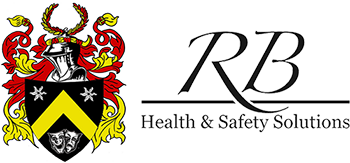
Published 22 Aug in
Fire Marshals - What are they, Why are they Important and Who can be a Fire Marshal?
The Cost of Fire
Each year in the UK, there are more than 22,000 non-residential fires, with a large number of these occurring in workplaces.
Aside from the potential impact on the life of employees, such fires can also carry with them significant business costs. These are so great that the Chief Fire Officers’ Association estimates that 60 per cent of private businesses never recover from a fire.
Why is Fire so Destructive to a Business?
Fire can have numerous impacts on a business, which can undermine the ability to trade and incur significant financial costs:
Staff Absence After a Fire
Employees could be physically and mentally affected by a fire, which can mean absences and the possible cost of temporary staff.
Smoke Damage
Smoke and soot from a fire gets everywhere and is time consuming (and expensive) to remove. Premises can be out of action for a considerable amount of time because of smoke damage.
Damage to Building from Fire
Depending how severe the fire is, the building your business is based in could be considerably weakened, something that presents a huge safety risk, one that could put the premises out of use for some time.
Equipment Damage After a Fire
Fire-damaged equipment is almost always unusable after the event. Even if you are insured for everything, it’s still going to take time to restore your business to pre-fire standards when it comes to equipment.
Documents Destroyed by Fire
Physical documents can be burnt or alternatively destroyed by the water used to douse a fire. If you’re not so paper-based and largely store files electronically, fire can still be devastating if you don’t have outside storage backup.
What Are Fire Marshals?
Fire Marshals are members of staff who have a duty to prevent fires from breaking out and for ensuring that should one occur, everything is in place and everything can be done to minimise its impact on the employees, the public and the business.
What are the Preventative Duties of a Fire Marshal?
The key here is to stop a fire starting in the first place, with that in mind, some of the preventative duties of a Fire Marshal include:
● Good house-keeping (for example, the Fire Marshal should ensure that paper is stored correctly and waste removed promptly)
● Making sure that smoking areas are controlled (ashtrays emptied)
● Ensuring that flammable liquids and hazardous materials are monitored
● Scheduling electrical safety checks
● Arranging staff fire safety inductions for new employees and updates to training for existing staff
What Duties of a Fire Marshal Minimise the impact of Fire?
If a fire does occur, the Fire Marshal should have put in place a system to tackle a fire quickly and to ensure that evacuation takes place efficiently and effectively.
● Fighting fires via the use of fully functioning and serviced fire extinguishers
● Raising the alarm / calling the emergency services
● Directing staff to safe available exit routes
● Sweeping all rooms where safe to do so to ensure that nobody is left behind or trapped
● Making sure that final fire doors are closed
How Many Fire Marshals Should a Business Have?
Really, all employees need to know what to do in the event of fire and new employees must be shown what to do when they join your business. In that sense, almost everybody could be a ‘Fire Marshal’ to some degree.
But when it comes to actual Fire Marshals, a lot will depend on the size of your business, its setting, the demographic profile of your employees, whether you are open to the public and your risk assessment (mandatory under UK law).
Who Should I Choose to be a Fire Marshal?
Anyone can be a Fire Marshal. But, in reality, you are looking for responsible persons. As an employer you will know your staff best when it comes to this issue. The Fire Marshal is a vitally important position, so you will need employees who are dedicated, organised and competent. You will also need employees who are in the building regularly.
Get Them Trained?
If you want to achieve the best standard of competency and knowledge in your Fire Marshals, then getting them externally trained is a good option. There are a number of providers of online and onsite training, many of which are approved by The Royal Society for the Prevention of Accidents (RoSPA). These courses cover aspects of fire safety such as:
● Fire Legislation
● Fire prevention
● How to use fire extinguishers
● Evacuation procedures
● What you should do in the event of a fire

Fire Marshal Courses by RB Health & Safety Solutions
This course will cover the duties of these vital roles within your business. Courses can be tailored to your venue and for larger contracts, we are also able to develop tailor-made tactical decision making exercises for Marshals using photos and scenarios of your specific venues. Practical fire-fighting (using live fire simulators and various extinguishers) can be included in this course if the venue is suitable and there are adequate parking arrangements.
Click here to find out more or contact us to discuss your business's requirements.

